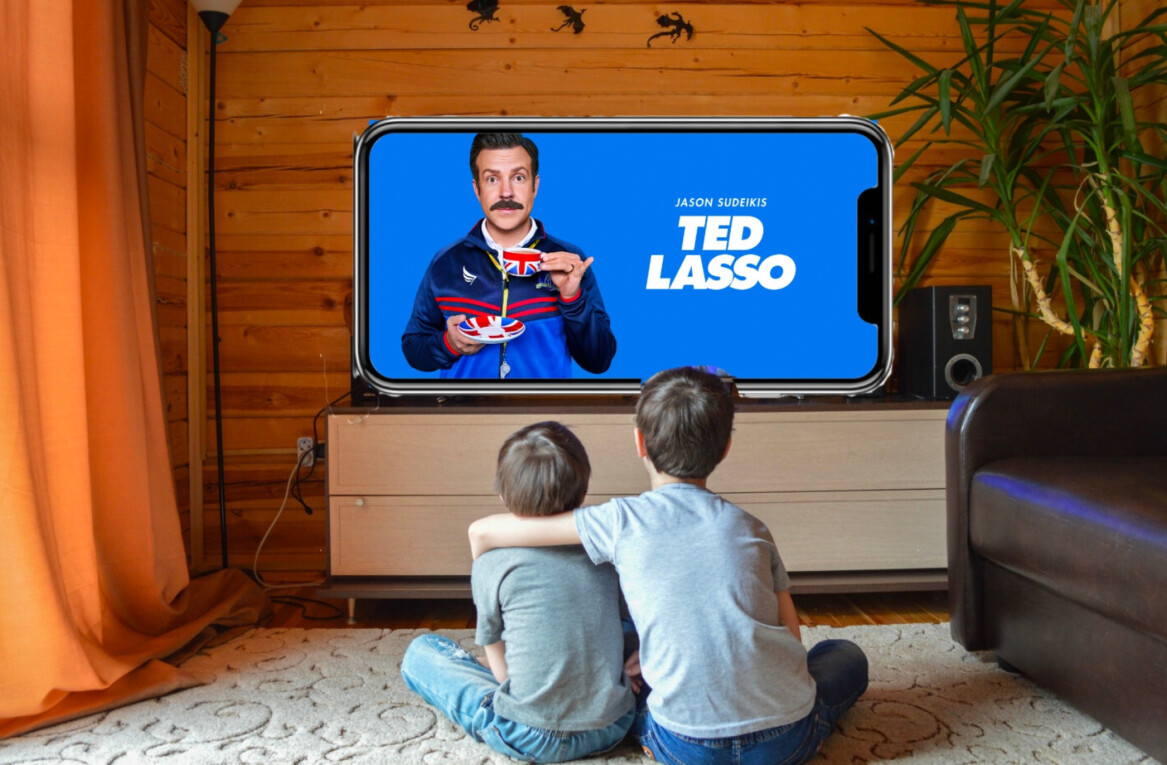
One of the true auteurs of the videogames world has released his first ever mobile title – but it’s less of a game and more of an ‘experiment’. We caught up with him to find out more.
Peter Molyneux has a long history of creating deep, enjoyable game experiences for computers and consoles. Titles like Populous, Theme Park, Black & White and Fable have given the man a cult following that has raced to download his mobile debut, Curiosity: What’s Inside The Cube.
Molyneux is keen to point out that this is an experiment in humankind’s curiosity, rather than traditional game. The game had been scheduled to go live in the App Store at 8.22am UK time today (a precise time chosen to match the name of his latest company, 22Cans), however it went live a day early. Opening the app up, you’ll discover a large, black cube displayed on screen. All players see exactly the same cube, and the idea is that everyone taps away at it, slowly destroying it, piece-by-piece, layer-by-layer.
Along the way, surprises are promised, in order to keep players tapping away. For example, Facebook data will be used to display photos you recognize on certain layers. Whoever gets to the very center of the cube first wins. While Molyneux won’t say exactly what the prize is, it’s not money or a car, and he describes it as “amazing” and “life-changing.”
The game has already proved so much of a hit that 22Cans’ servers have been overwhelmed by the number of players trying to tap away at the cube.
I caught up with Molyneux at a Tel Aviv branch of Aroma – Israel’s answer to Starbucks – earlier this week, as he prepared to discuss the new release onstage at Microsoft’s Think Next event. So, how does a designer with a background in big-budget computer and console games approach his first mobile release?
“Because of smart devices, everything’s changed. The way that I have to design a game has to be completely and utterly different to anything I’ve done before,” he explains. “And that’s why this experiment is so important for us, because it connects people together. Simultaneously you can see everybody doing the same thing together. That’s a very different way of thinking for a designer such as myself.”
The untapped potential of mobile gaming
It seems that most of the innovation that used to be prevalent in console gaming has drained away in recent years, in favor of big-budget, near-guaranteed hits from franchises like Call of Duty and Medal of Honor. Meanwhile, the indie and mobile sector are fertile ground for new ideas. Why is this? As an established designer who has made the switch to mobile, for Molyneux it’s all about the hardware.
“The tech world is obsessed with smart devices. That means that all the innovation is going there. If you look at Apple and Samsung and Microsoft, they’re all releasing releasing products every month, practically. The poor old consoles go through seven year cycles. That means that the current consoles out there haven’t had any new hardware put into them and that makes it more difficult for people to innovate on.
“I think there will be a new console generation coming very soon. We’ve got the Nintendo Wii U coming out this holiday so you’re going to start seeing some innovation there, but it’s been a while.”
 Despite all the action in the mobile gaming space, there’s still a long way to go, Molyneux believes. “I have to be honest – it just seems to me that a lot of experiences on mobile are kind of where we were in the games industry in the late 80s and early 90s, There are some nice experiences – I’m playing a game called Clash of Clans and I’m really enjoying it, but it’s very, very light, it’s very throwaway. I’m not sure that in three years there’s going to be something like that around.
Despite all the action in the mobile gaming space, there’s still a long way to go, Molyneux believes. “I have to be honest – it just seems to me that a lot of experiences on mobile are kind of where we were in the games industry in the late 80s and early 90s, There are some nice experiences – I’m playing a game called Clash of Clans and I’m really enjoying it, but it’s very, very light, it’s very throwaway. I’m not sure that in three years there’s going to be something like that around.
“For me, there isn’t a defining entertainment game on any device yet. There are some interesting ideas, but nothing that if I met a friend down the pub I’d say ‘You’ve gotta play this.’
“Nothing’s blown me away as much as the hardware has. There’s nothing that really uses that hardware in an amazing and delightful way and that’s why I’m so fascinated by it – that someone out there is going to make an entertainment experience that touches the world, and I’m not sure anything’s done that yet.”

The entrepreneur
Molyneux’s first ever game, back in the 80s, was a business simulation called The Entrepreneur. That title was strangely prescient given his subsequent career, which has seen him build companies from startup stage, sell them to major publishers, only to start again from scratch soon afterwards. After selling Bullfrog Productions to EA, he quit to form Lionhead Studios, which was later sold to Microsoft. Now he’s started again, with 22cans, a 20-person startup that has been developing Curiosity since Molyneux left Microsoft earlier this year.
“Businesses have a rhythm, they have phases that they grow through. I love the starting phase, when you’re founding a team. When I started this latest business, it was just three of us in an office seven months ago and we had nothing. Going from that, there’s now twenty of us and we’re releasing our first app.
“As the business grows and changes, you get obsessive about something – it may be that you can’t do something in that business that you need to, and that’s why you partner with someone else. Maybe that will happen with 22cans, or maybe well stay small and tight the whole time.
“Businesses are like living organisms – they change, and you have to react to that change.”
Massive impact
As an app, Curiosity has a limited lifespan. At some point, Molyneux isn’t exactly sure when, someone will reach the center of the cube and the experience will end for everyone. What are his plans for 22Cans beyond this first title?
“The first plan was to bring together an incredible team of people who are just super-passionate about making something that’s going to make a difference of smart devices. What we’ve got written on the wall is that someone – hopefully it’s going to be us – will make a game that will touch a hundred million people in a single day. Now just imagine that. Imagine being part of a team that’s going to make something that a hundred million people interact with. That is our obsession, and that is our absolute focus.
“To do that, we need to experiment and find out what works and doesn’t work, and that’s why our first app we’re not calling a game, we’re calling an experiment.”
Curiosity: What’s Inside the Cube is free and available now for iOS and Android.
➤ Curiosty: What’s Inside the Cube: iOS / Android
Image credit: Thinkstock
Disclosure: Microsoft paid for The Next Web’s trip to its Think Next but has no influence at all over anything we publish.
Get the TNW newsletter
Get the most important tech news in your inbox each week.





